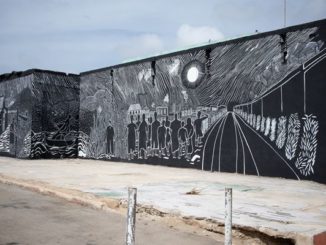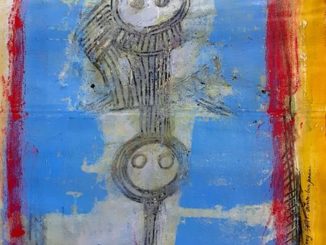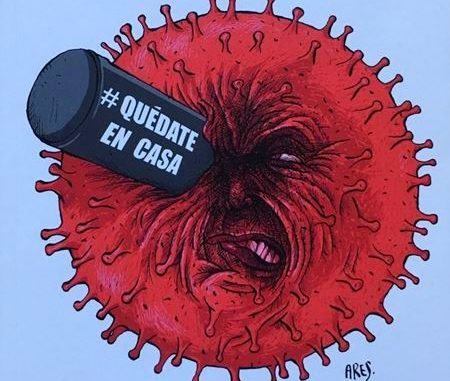
There is a world after coronavirus and we all wonder what it will look like between speculation and certainties. A recently published book seems to provides answers to many of the collective questions that half the world is asking during this pandemic.
From the authorship of two Cubans, writer and journalist Felix Lopez, and painter and caricaturist Aristides Hernandez “Ares”, comes “El Mundo después del Coronavirus” (The World After Coronavirus), a collection of twenty stories and 45 caricatures in 152 pages.
Kariculture.net talked via Whatsapp with Mr. López who, from his lockdown in Spain, told us about the birth of this text, which “is neither a quarantine newspaper, nor a medical treatise on the pandemic, but a journalistic opinion book”, he explained.
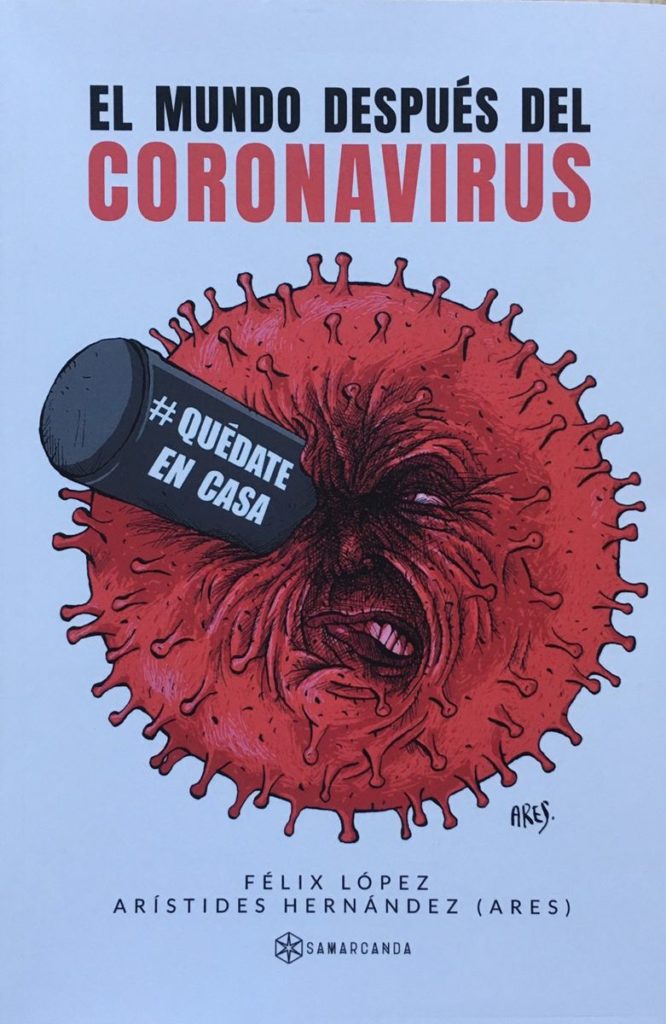
Kariculture.net : How the idea of the book was born?
Félix López : I always say that it is the work for time and chance. Time, because quarantine opened an infinite space for creation. Chance, because the meeting with Ares, the co-author of the book, was almost fortuitous.
At the beginning of April, when coronavirus was already catastrophic in Spain, I was on a remote beach in Andalusia, by the Mediterranean, writing a novel I want to finish this year. But one day I was woken up by the journalist who goes everywhere with me and who pushed me to write about the gloomy scenario around me. That’s how I started to downloading a text every Sunday to the Facebook wall, which I classified as “Viral Perceptions”.
I immediately realized that Ares was doing something similar but with caricatures so I wrote to him and asked him for one of his drawings to illustrate my work. He replied and offered me more than a caricature : Ares was the one who invited me to make a book together. The next day the project of The World After Coronavirus was already there.
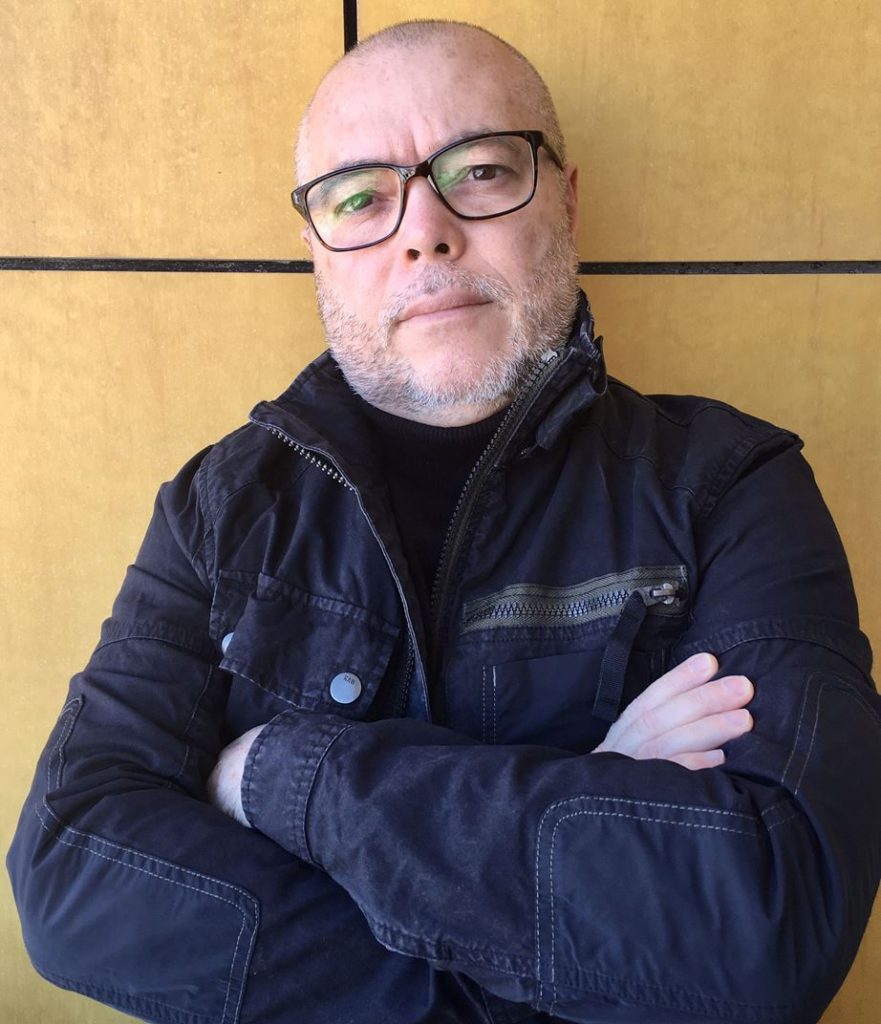
Kariculture.net : Isn’t it a little early to talk about what a world will be after a pandemic that is not yet over?
F.L. : One of the values of the book is that it is in the street with the booming pandemic. Ares and I both know that when the pandemic will be over the world will be flooded with books about coronavirus and then the readers will be so exhausted from this long quarantine that they will need to read other things. So we said, “It’s now or never”.
There are many people waiting for a vaccine, we are offering an immunization of the soul. That’s what the books are about. They are a kind of spiritual medicine against misinformation and ignorance.
It is true that the pandemic is still raging in North America and Latin America, which are now the epicenter of the coronavirus. But there is a list of issues and questions that are in the recurring concerns of people around the world that can already be addressed. Many people are desperately looking for answers to the existential dilemma that ambushed them.
Nature gave us a last warning and is charged with showing us how ephemeral and fragile life is, especially when we travel the world without worrying about the environment, good manners and ancestral values that were forgotten by man.

Kariculture.net : What topics are covered in the book?
F.L.: The first thing Ares and I did was to identify about twenty topics related to the recurring concerns in any country in the world. This is how we began to write about the environment, about household and national finances, about the 175 million jobs that were lost and that activate this other stationary pandemic that is hunger, about the effects of quarantine and about the myths that are crumbling in the eyes of the world.
We also dedicated space to ploticians’ management of the global crisis, the role of the media that informed and deceived us in equal parts, as well as the use of all the communication tools that were developed in this century and what today we call the “digital revolution”.
We do not forget those grandparents who were born in the midst of war and died in a pandemic, the children who lived this horror that seemed impossible to us and the doctors and health workers who risked everything for humanity.
It was the doctors and most of the artists and intellectuals who changed the face of misfortune. The former earned the applause that used to be the privilege of rich footballers, the latter became the spiritual medicine of the people, proving that Victor Hugo’s words were true: “it is not machines that move the world, but ideas”.
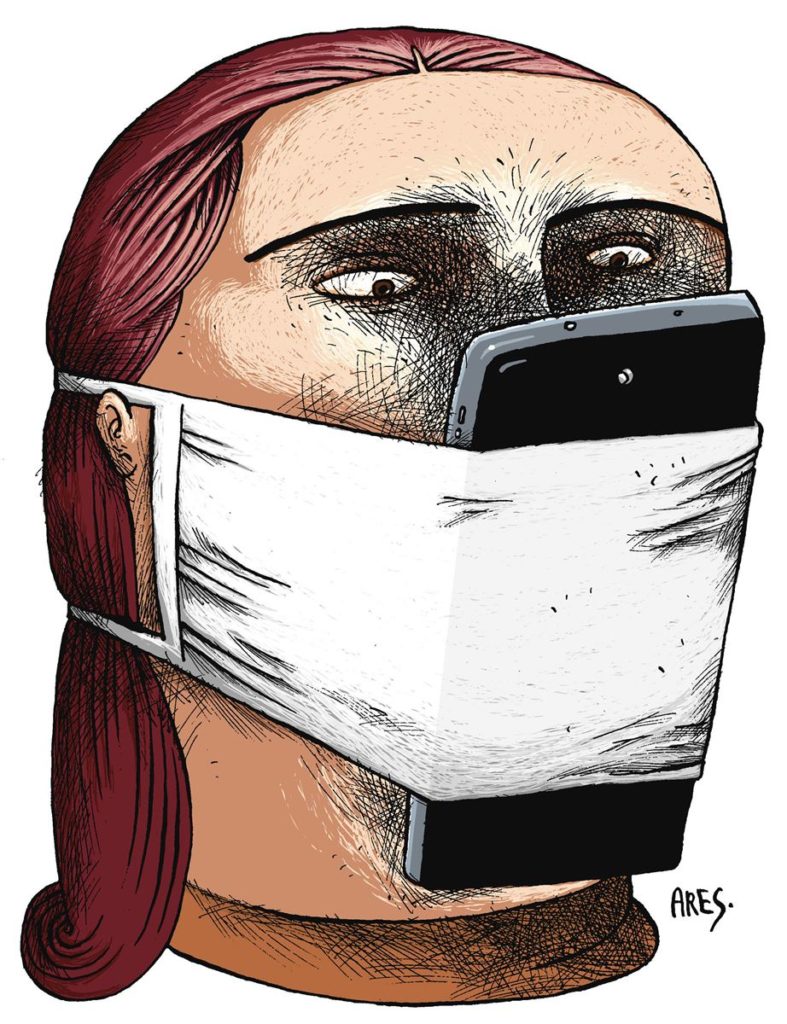
Kariculture.net : How did the creative process unfold? Was there previous agreement on the themes?
F.L. : We chose the themes and each one gave his opinion about them the way he knows how to do it : one with the caricature and the other with the word. Of course, there is a cultural, ethical and cultural affinity between Ares and me, so that although each one did his own work alone, the caricatures and texts embrace each other in a unique way.
Although separated by seven thousand kilometres, I in Andalusia and Ares in Havana, the digital revolution allowed us to experience the creative process of the book, connected as if we were in an editorial office.
For a little over a month, we spoke several times a day. And from each discussion, a new idea emerged, or what we had left behind was perfected.
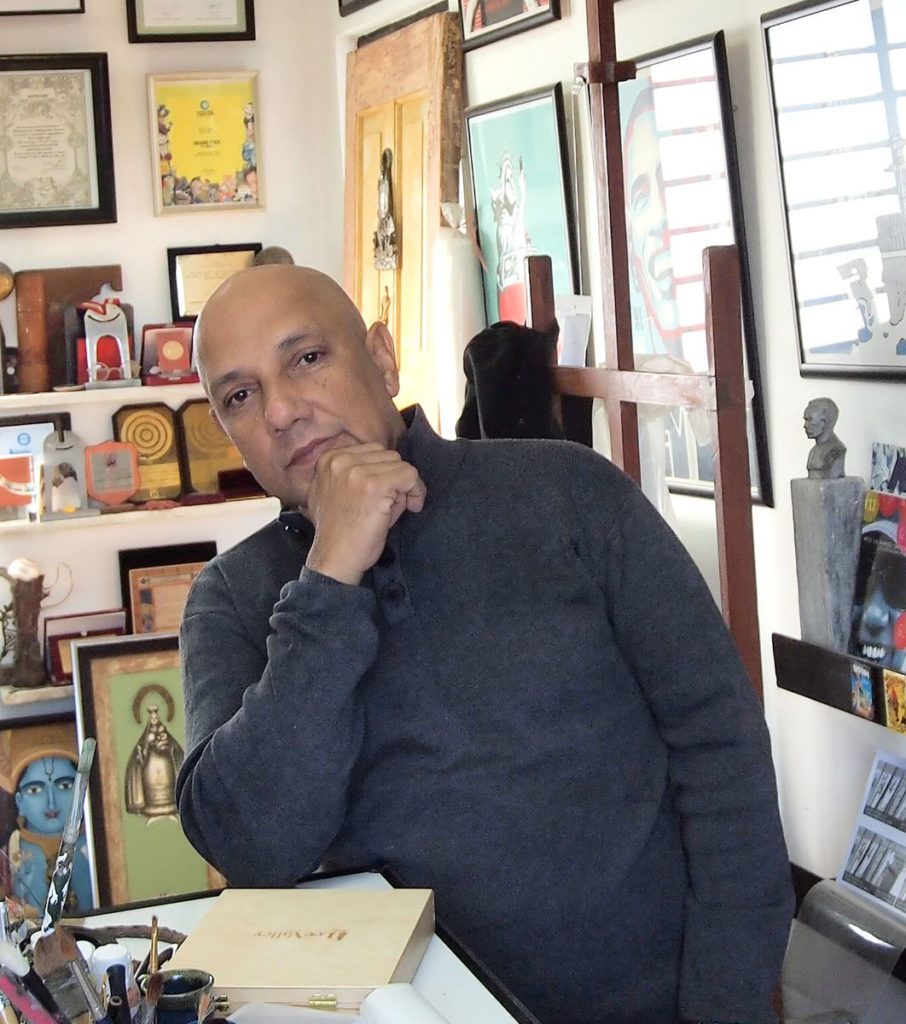
Kariculture.net : Was it your first time working with Ares?
F.L. : It was the first time we worked together in the middle of a pandemic or a quarantine. Ares and I met 25 years ago at the editorial office of Juventud Rebelde, a Cuban newspaper. We came up there almost together, he was a psychiatrist who wanted to be a caricaturist and I was a madman who wanted to become a writer.
In a quarter of a century, Ares became one of the most awarded caricature artists in Latin America. So every project you start with him is intended for total success. If you add the gift of people and the good vibes that go with it, then you will feel twice as comfortable working with Ares.
There are at least two other books of mine that are illustrated with caricatures by Ares : Los guardianes del periodismo pornográfico and Escualilandia, both published in Venezuela. This meeting was a pleasure and it ranks as the best of the quarantine, after the time dedicated to the family.
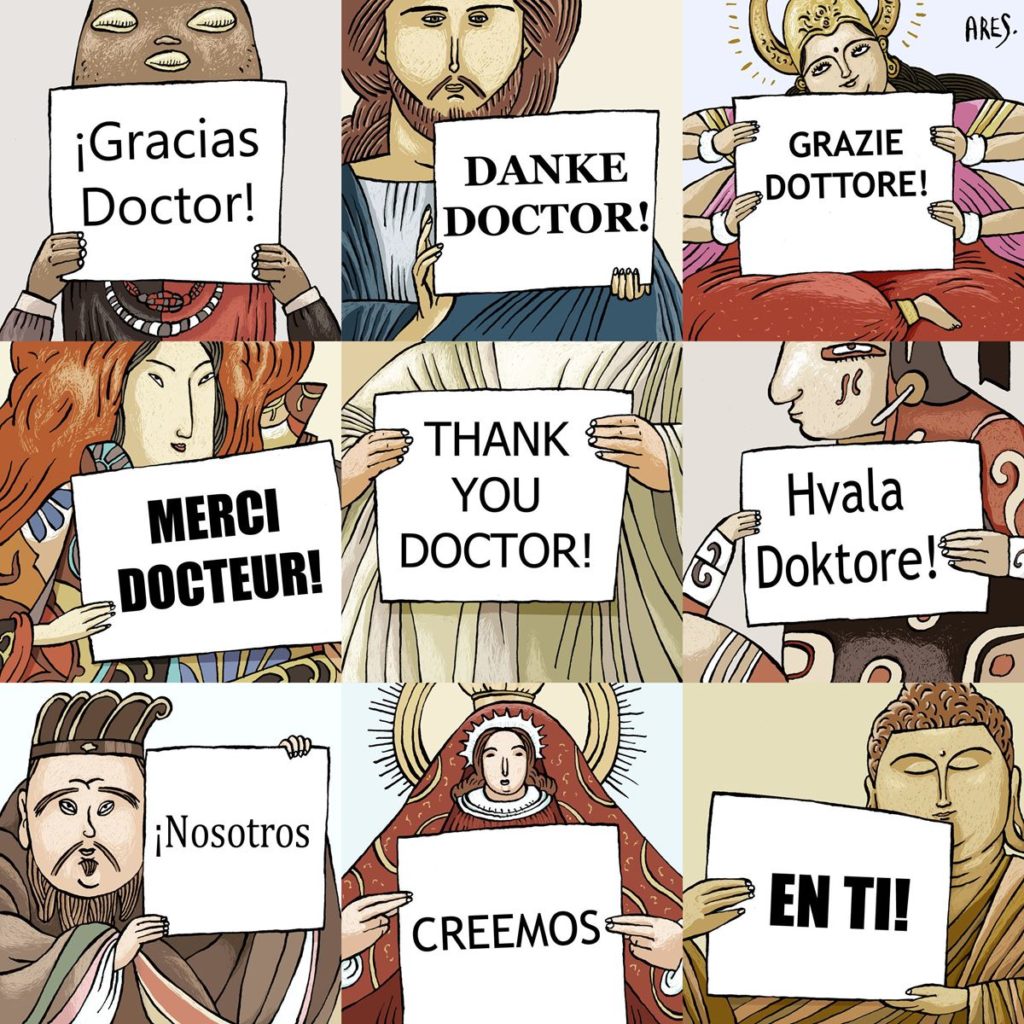
Kariculture.net : Is the caricature by Ares that just won a prize included in the book?
F.L. : Yes, this is the caricature that accompanies the chapter entitled “Superheroes do exist”. And this is the one dedicated to doctors and health professionals around the world.
The book still smells of fresh ink and this caricature has already won the Grand Prix of the UYAAC 2020 International Anti-Coronavirus Competition in China. But I can assure you that in the future all the caricatures in the book will win other prizes, other competitions or simply will bring a reflection or a smile to the readers.
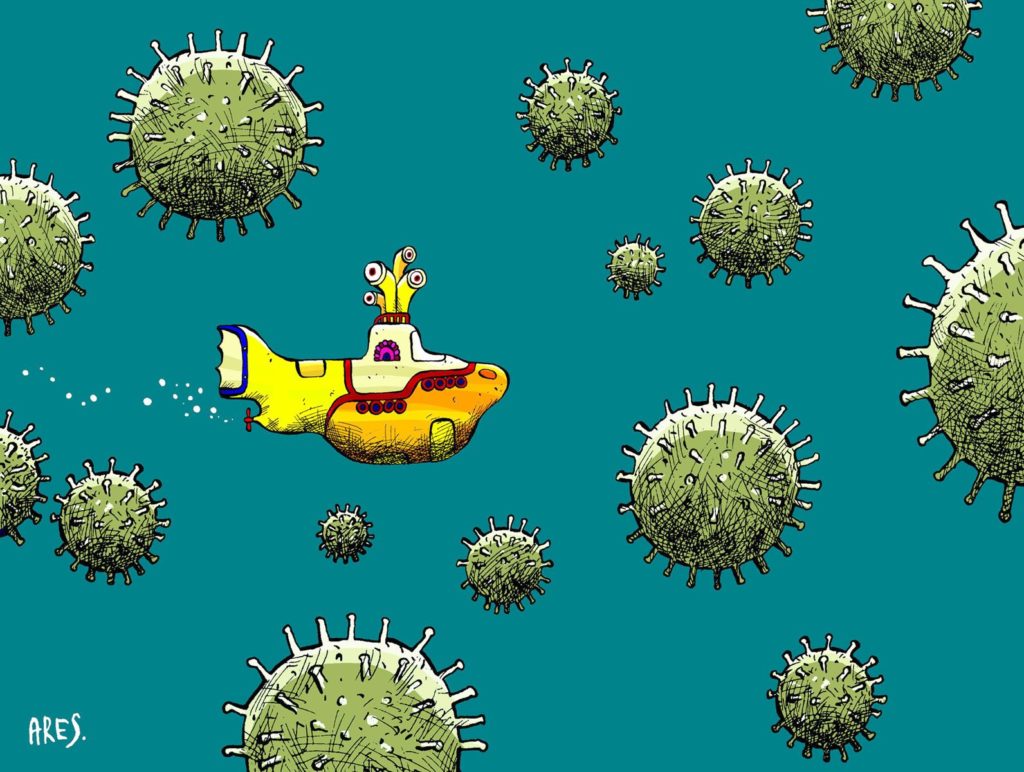
Kariculture.net : You tell me that 25 years ago, as a young journalist, you wanted to be a writer. When and how did your literary vocation awaken in you?
F.L. : One day I got tired of other people editing my journalistic texts. Sometimes mediocre people who don’t even know how to explain why they mutilated a personal opinion. I decided that I would be my own editor and I was left alone with the computer, far from the editorial offices. It was a difficult process, but later I understood that I had saved the journalist forever and had opened the windows to another horizon of creation.
This pandemic, for example, showed us how fragile life is. It gave us a message : clinging to what is not right, if you can be happy without great pretensions.
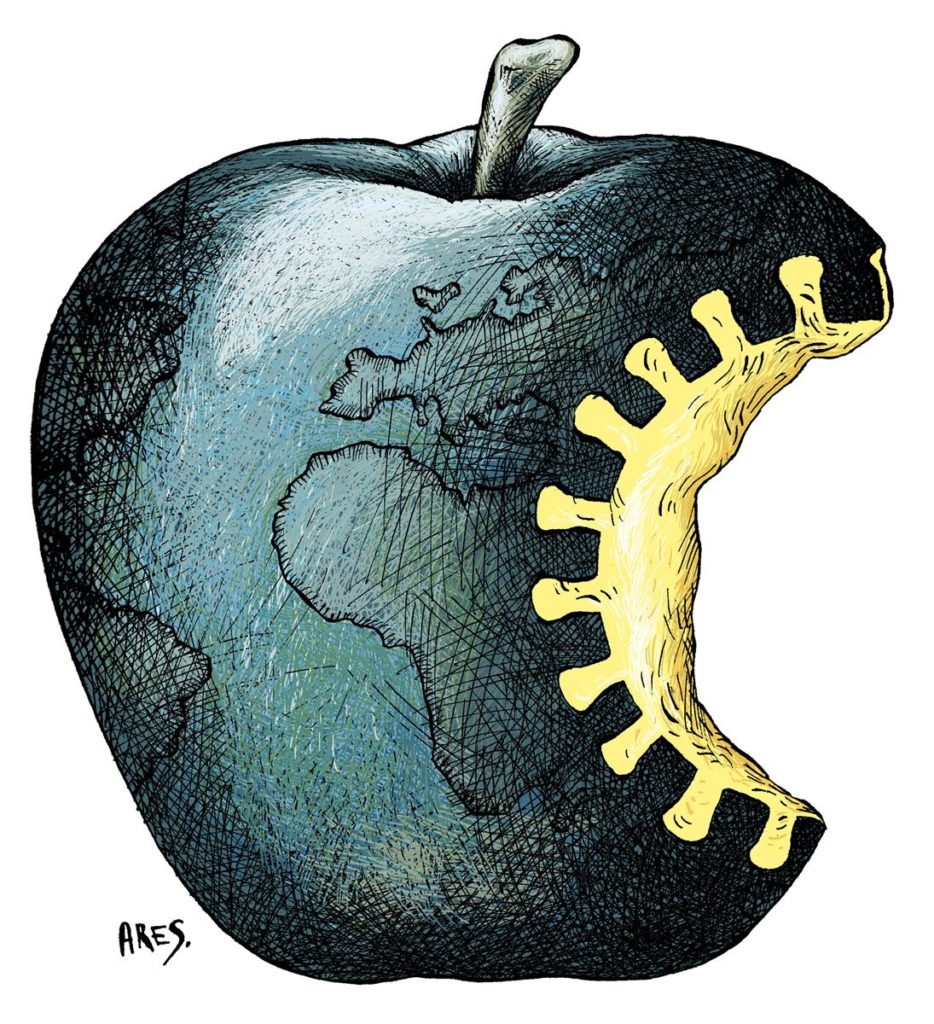
Kariculture.net : Do you think that in your case there is a certain connection between your profession and the themes you develop in your stories?
F.L. : Total connection. My stories are based on reality. Historical novels and journalism go together in many things. The way you investigate, confront reality, and support people’s spiritual needs?
A journalist knows he needs a reader. This is an advantage my colleagues do not always appreciate. We are privileged and often do not realize that.
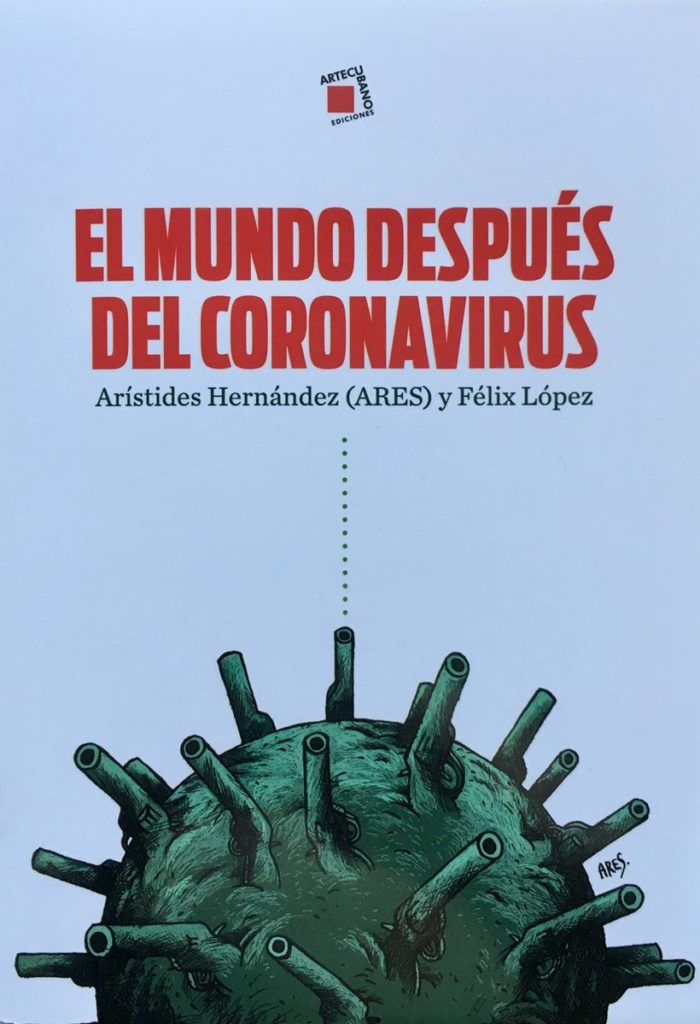
Kariculture.net : How was The World after the Coronavirus received by the readers?
F.L. : Imagine that you are desperately waiting for a saving vaccine and two guys appear and bring you a book that claims to be a vaccine for the soul. Very beautiful things are happening to us. People who write from places where we never went and say “I’m reading the book” or just “thank you”. The greatest joy was precisely to reach people in the middle of misfortune.
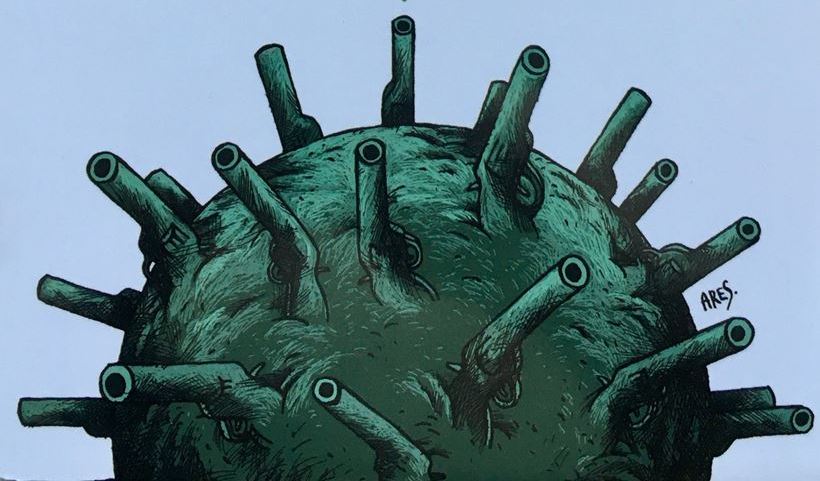
Kariculture.net : Where can you buy the book?
F.L. : The World after Coronavirus was published in record time by the Spanish publishing house Samarcanda-Lantia Publishing and by Arte Cubano, in a special edition for the island.
It is available in paper at Libros.cc, Amazon and in bookstores in Spain. In digital format it can be found on El Corte Inglés, Casa del Libro, EbookGoogle and Tagus.
In Cuba, as soon as the “new normality” allows it, a presentation of the Cuban edition will be made, together with Ares’s exhibition, made up of about 45 caricatures.
In August, we will be at Unesco with Ares’s exhibition and the presentation of the book.

